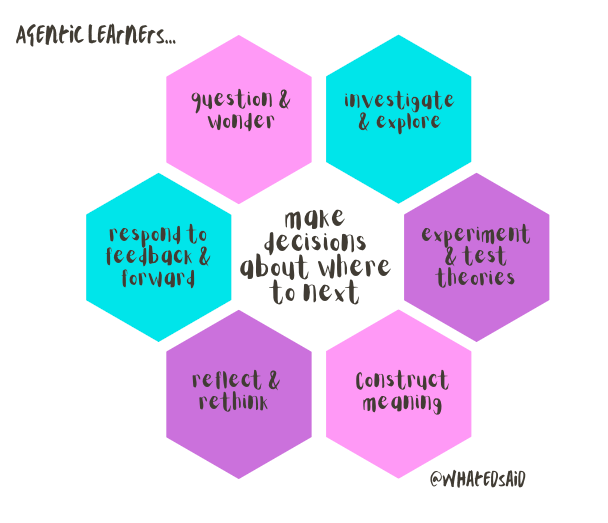Every time we’ve thought about how we might improve our reports, we’ve failed. The barriers to major change have somehow seemed insurmountable. Parental expectations, government requirements, technical restrictions, constraints from within and outside of the school and our own heads… all of these have stood in our way.
And then came COVID, along with weeks of remote learning, and the chance to reimagine our reports, at least for this semester. The only barrier was time, and this turned out to be an advantage. No time to seek perfection, just the opportunity to take an inquiry stance, dive in and produce something both meaningful and practical, as quickly as possible.
How might we create a report that aligns with what we believe about learning? What if we report on what we really value in learning? What if we elect to report only on transferable skills? What if we let go of expected ‘levels’ (real or imagined) and pay more attention to who each child is as a learner? What if we focus on assessment FOR and AS learning, rather than only assessment OF learning? How might we support students and parents to value and reflect on skills that really matter?
So we created a written report which views the whole child, addressing the development of a broad range of skills and dispositions including social, self-management, communication, thinking and research skills. These ‘ATL’ skills, as we call them in the PYP, are the building blocks that support our learners in all areas of learning and of life.
How might we best observe, assess and reflect on these skills? We considered the possibility of creating a grade by grade continuum but the development of these skills is neither age dependent nor linear. Is developing and reflecting on these skills, in fact, lifelong learning? How best might they be learned? Some influencing factors include the language we use to notice and name them, how they are modelled, opportunities for them to be demonstrated, expectations and routines around practising them. Once again, we see Ron Ritchhart’s cultural forces at play. What if, rather than seeing them as being ‘taught’, we consider how most of these trans disciplinary skills might be enculturated?
Our written report will be accompanied by in-depth conversations between students, parents and teachers. Together, the written report and the conversation will focus both on growth and on potential next steps. I’m conscious of how the Growth Coaching approach has influenced this vision. Some years ago, we shifted from performance appraisals for teachers to a growth model, in which teachers, in partnership with leaders, are encouraged to identify strengths and set goals for further development. Why should students be measured against arbitrary age based standards? What if the focus for student reporting was on growth, too? What if strengths were highlighted and students were supported to reflect on future action they might take to further their development?
Are we there yet? No. Have we come up with a starting point that (mostly) addresses expectations and requirements, while coming much closer to aligning our beliefs about learning with the way we report on it? Yes. Are we still struggling with some aspects as we explore how to improve on and sustain these changes? Absolutely. But embracing the power of ‘what if?’ is how we drive change and how we grow.
I’m certain that many of you are reporting in this way already. We’ve been on the road for a while now but, somehow, we needed this period of remote learning to give us permission to see a potential new way forward.




